BCS Professional Certificate in Agile Business Analysis
Professional Course on Concepts, Practices, Techniques and Tools in Agile Business Analysis Select Course Date and Time Based on Your Convenience!
- Instructor-led, Online
- Course Category: Business Analysis, Certification, BCS, Agile
GBP
250
Instructor-led, Online
Duration: 16 Hours
Course Code: TXV-BCS-ABA3
Skill Level: Intermediate
BCS Professional Certificate in Agile Business Analysis
Overview
In an age of rapid changes in business trends, technologies and lifestyles, organisations and individuals must be adaptive and business analysis professionals are not an exception. The modern day, agile business analysts are open to change and pro-actively understand the impact of changes on business, technology, products and people. They work with senior leadership teams and also technical teams, customers and end-users with as much ease. Agile BAs write user stories, plan releases and prioritise features alongside product owners, create wireframes and mockups, model problems and solutions, validate, test the functionality and do a lot more. Take the TEXAVI Course on BCS Professional Certificate in Agile Business Analysis to learn the concepts, principles, techniques and tools necessary to succeed in the digital, mobile, agile and social times!
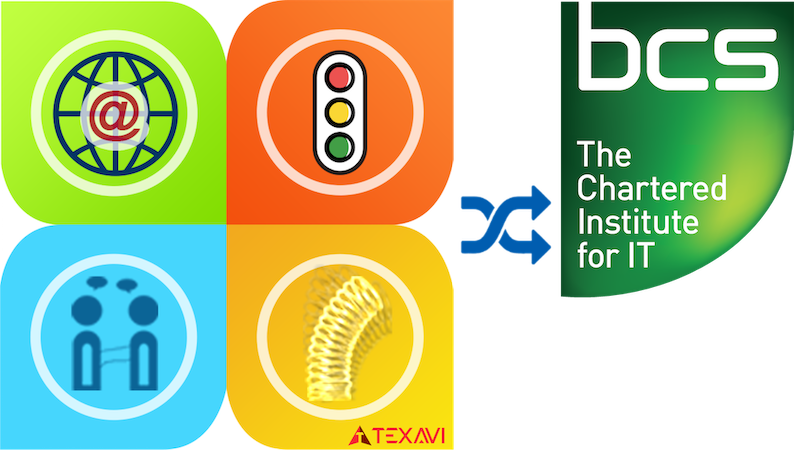

Who can attend?
- Anybody with or without work experience
- IT professionals (eg., Developers, testers) considering a move to BA role
- Non-IT people who want to learn IT skills thinking of a career switch
- Graduates and university students who aspire to get into IT industry
- Students who have just passed their B. Tec, A-Levels or college studies
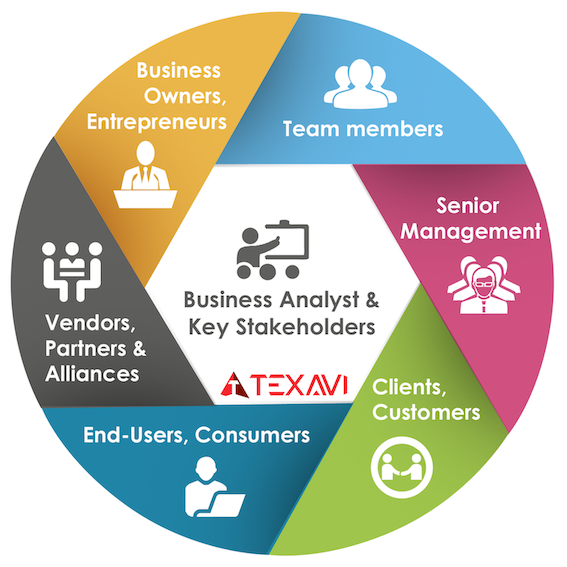
COURSE OUTLINE
-
Module 1: The Context of Agile Philosophy
-
Module 2: Agile Principles and Practices
-
Module 3: Popular Agile Methodologies
-
Module 4: Role of Business Analyst in Agile
-
Module 5: Strategic Analysis and Product Management
-
Module 6: Working with Stakeholders in Agile
-
Module 7: Creating and Managing Requirements in Agile
-
Module 8: Agile Modelling and Decomposition
-
Module 9: Managing Product, Release and Iteration Backlogs
-
Module 10: Estimation in Agile
-
Module 11: Planning and Prioritisation
-
Module 12: Agile Best Practices and Techniques for BAs
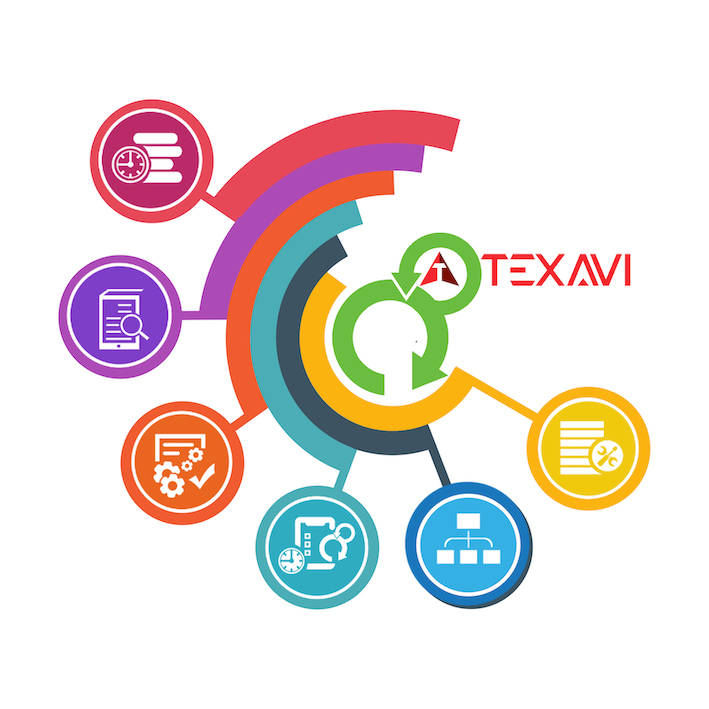
What will you learn?
By the end of this course, you will be able to:
-
Describe the philosophy underpinning the agile approaches
-
List the several use cases and contexts for applying agile methodologies
-
Explain the importance of agile development in managing changes
-
Apply the following agile core values while implementing an agile methodology
-
Collaboration between business and development team
-
Agility through excellence
-
Engaging conversations
-
Empowering the team
-
Continuous delivery
-
Embrace changes
-
Working product
-
Timeboxing
-
Constant pace
-
Self-organising teams
-
Minimalism approach
-
Introspection and retrospective
-
-
State the agile manifesto and explain the core agile values from the manifesto
-
Identify at a very hight level, the twelve core principles in agile methods
-
Explain the evolution of different agile methods and their suitability for different contexts
-
Scrum
-
Lean
-
Extreme Programming
-
Kanban
-
SAFe
-
-
Elaborate on the key features and practices of Scrum
-
Discuss why Sprint is the spirit of Scrum
-
Describe the various Scrum ceremonies and events
-
Discuss the application of agile in the wider business context
-
Discuss scaled methods v. product development methods
-
Describe a range of agile methods (process, roles, principles)
-
State the role of business analyst in an agile team
-
Evaluate the applicability of an agile method for a given situation
-
List the roles and their responsibilities in agile projects
-
Discuss the key responsibilities, activities and artefacts of agile BA
-
Identify the various stakeholders in an agile context
-
Categorise the stakeholders identified into one of the following categories:
-
Business stakeholders
-
Project stakeholders
-
Technical stakeholders
-
Development stakeholders
-
-
Explain how planning works in agile
-
Apply ‘timeboxing’ concept while planning in an agile project
-
Product vision –> product roadmap
-
Product backlog –> Release backlog –> Sprint backlog
-
Backlog grooming, story refinement
-
-
Apply the STOp tool to conduct planning in agile
-
Talk about the different factors that affect estimation
-
Explain the inputs and outputs for estimation
-
List the different approaches to perform estimation in software development
-
Identify some of the popular estimation methods in agile projects
-
Work breakdown structure (WBS)
-
Use Case Point (UCP)
-
Story point estimation (SP)
-
-
Describe the best practices in agile estimation:
-
Scoping in and scoping out
-
Using team’s productivity effectively
-
Using relative estimation
-
Tee-shirt sizing technique
-
-
Elaborate on the steps to perform prioritisation:
-
Estimate
-
Prioritise
-
Develop
-
Evaluate
-
-
List and discuss the popular prioritisation methods in agile projects
-
MoSCoW model
-
Importance vs urgency matrix
-
POLDAT Technique
-
-
Describe the following agile techniques and tools, highlighting their applications:
-
MoSCoW technique
-
Kano’s model
-
Prioritisation slider
-
-
Elucidate the use of prioritisation in agile deliverables:
-
Product backlog
-
Release backlog
-
Iteration/spring backlog
-
Epics and themes
-
Stories, tasks and sub-tasks
-
-
Elaborate on release management approaches:
-
Major releases
-
Minor releases
-
Patches
-
Fixes
-
-
Discuss the functional model map
-
Illustrate the use of agile analysis, modelling and documentation techniques
-
Analyse business goals and their decomposition
-
Identify and document user roles
-
Define user story and discuss the application of the user stories
-
Describe the steps in writing good user stories
-
Elaborate on INVEST principle and its use in validating and verifying stories
-
Discuss acceptance criteria and their importance in agile projects
-
Apply the PDCA (Plan, Do, Check, Act) cycle for continuous improvement
-
Describe the agile toolkit aka DMAIC and the steps involved:
-
Define – State the problem
-
Measure – Set baselines
-
Analyse – Go to the root
-
Improve – Identify the steps
-
Control – Assess the results
-
-
Explain Definition of Done (DoD) using the criteria and conditions
-
Elaborate on the Definition of Ready (DoR) using the development ready statuses
-
List the inputs, activities, outputs and roles involved in following Scrum events:
-
Daily Scrum
-
Sprint planning
-
Sprint execution
-
Sprint review
-
Sprint retrospective
-
-
Describe the best practices and techniques adopted by agile teams and how that’s relevant to agile business analysts:
-
Continuous development, continuous integration, and continuous delivery
-
MoSCoW prioritisation
-
Planning Poker and Tee-shirt sizing estimation
-
Kanban team board
-
BDD acceptance criteria aka Cucumber/Gherkin statements
-
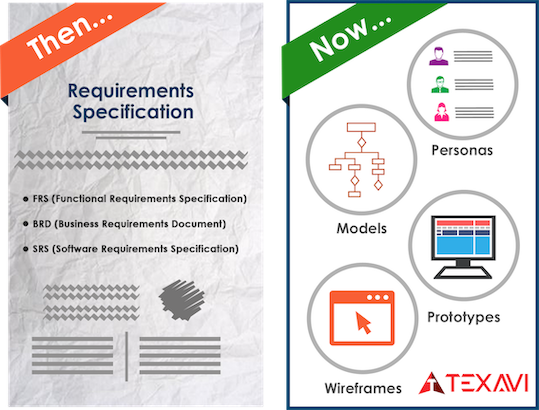
What do you need?
There are no pre-requisites for this course. There is no need for any prior experience, working knowledge or awareness of software development or projects experience. The course is suitable for experienced professionals working in the industry or academia, aspirants and early stage professionals, as well as students in universities and colleges. Professionals and aspirants from technology, business, operations or sales are all welcome to explore and understand the agile methodologies alongside their concepts and principles.
WHAT'S INCLUDED?
- 24×7 access to TEXAVI’s high quality course content
- Practical insights from real life IT projects
- Course completion certificate
- Case studies, examples and illustrations
- Interactive quizzes and challenges
- Job aids, resources and tools
- Access to TEXAVI’s collaborative digital platform
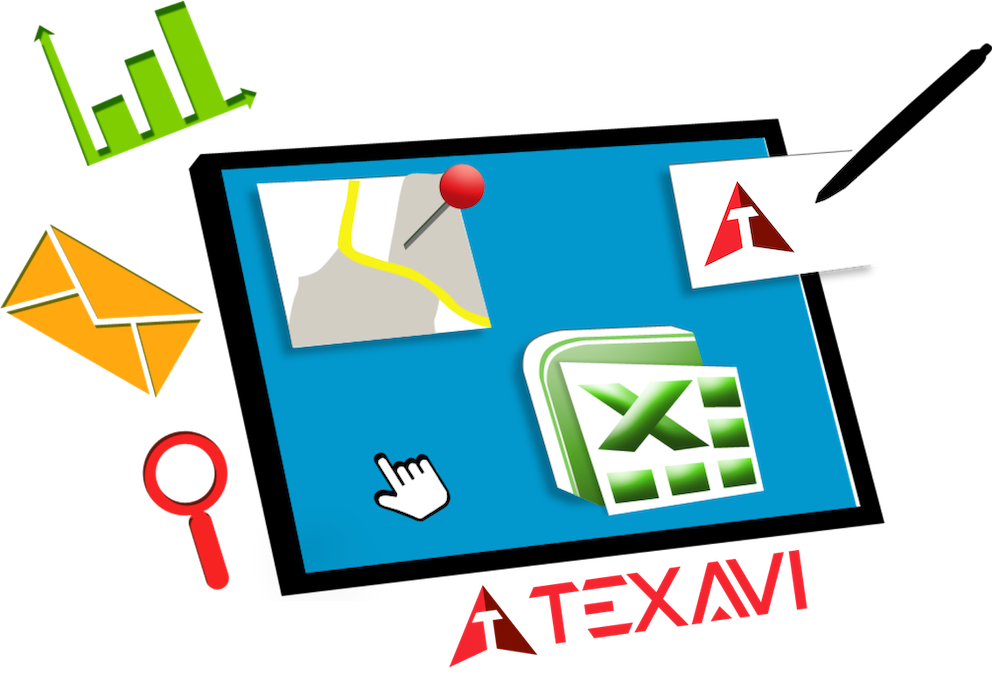
Why Texavi?
-
TEXAVI is a proven leader in delivering non-coding IT learning, worldwide
-
We are not just trainers, but practising IT professionals with 25+ years of work exp
-
Our courses get you job-ready with practical and real-time insights
-
Qualify for certificates upon completion and complete our assessments
-
Pave way for industry-recognised certifications
-
Access to treasure of Texavi’s high-quality, content-rich resources and materials
-
Get discount voucher to our popular courses on Udemy
-
24×7 access to Texavi’s interactive platform with personalised content

Sample Course Video
TEXAVI Tests
Test Your Knowledge

Take the Texavi Tests and challenge yourself, simply click the below links and start the interactive quiz…
- Quiz on Business Analysis Concepts As Per BCS
- Quiz on Scrum – Challenges in Practice and Implementation
- Quiz on Scrum – Nuances in Practice and Implementation
- Quiz on Scrum Fundamentals Test
- Quiz on Core concepts, principles in Scrum
- Quiz on Key practices, methods and approaches
- Quiz on Business Analysis Planning and Monitoring – Assessment Quiz 1
- Quiz on Planning and Monitoring Business Analysis – Assessment Quiz 2
- Quiz on Why Business Analysis? Rationale and Value-add of BA
- Quiz on Roles and Responsibilities of Business Analyst
- Quiz on Requirements Analysis – Design Definition & Solution Recommendation
- Quiz on Measure & Assess Solution Performance
- Quiz on Core Principles and concepts in XP (Extreme Programming)
- Quiz on Key Principles in Agile Methodologies
- Quiz on Fundamentals in Agile Product Development
- Quiz on Test Driven Development – Concepts and Principles of TDD
- Quiz on Agile Unified Process – Core Principles and Concepts in AUP
- Quiz on Rapid Application Development – Concepts and Principles in RAD
- Quiz on Requirements Analysis – Validation and Architecture Definition
- Quiz on Requirements Analysis – Specify, Model and Verify Requirements
- Quiz on Strategy Analysis – Risk Assessment and Change Strategy
- Quiz on Strategy Analysis – Definition of Current and Future States
- Quiz on Requirements Assessment, Approval and Management
- Quiz on Requirements Traceability and Management
- Quiz on Elicitation and Collaborating with Stakeholders – Assessment Quiz 1
- Quiz on Elicitation and Stakeholder Collaboration: Methods and Techniques – Assessment Quiz 2
- Quiz on Elicitation and Stakeholder Collaboration: Communication and Management – Assessment Quiz 3
- Quiz on Business Analyst’s Resources, Sources and References
- Quiz on techniques, tools and resources for business analysis
- Quiz on Practical Business Analysis – Essential Aspects
Trainer Profile

Your trainer for this course is Pardha Saradhi Mantravadi. Pardha is a seasoned and well-qualified trainer, coach, mentor, influencer and thought leader. He has rich and varied IT-industry experience of 25 years, working in working in different roles as a Business Analysis professional with blue-chip organisations viz., HSBC, Deutsche Bank, Dyson, Asda, Cambridge University Press, Roche, King’s College London , Royal Society of Chemistry etc. Pardha delivers his training sessions by blending the concepts and principles with practical insights from real-life projects and programs…click here to view the complete trainer profile
Reviews
“The delivery was consistent, thoughtful and measured. Texavi’s masterclass worked well for me.”
– Louise Caldwell, OMT Group
“I enjoyed the bootcamp and found it very inspiring. I found your description of digital transformation very useful and I liked the examples that were given about successful digital businesses.”
– Dr. Carrie Mowatt, Royal Society of Chemistry
“What I like most about Pardha is the way he easily blends empathy for users within day-to-day software development tasks. This mix of vision and execution is rare and powerful.”
– Sarbajit Sen, Steelwedge Software
“Recently Texavi conducted a workshop on Agile methodologies. The trainer’s knowledge on Agile methodology has its roots grounded in experience.”
– Tazeen Sheikh, Mastek
” The trainer is very well-informed. I learnt a lot of background to digital transformation and artificial intelligence and how businesses can use them.”
– Robert Bowles, RSC
“I attended Texavi’s training on Agile Business Analysis and had a lot of takeaways from the session. Pardha’s effective presentation skills supported with context you can relate to, makes the entire experience exhilarating.”
– Abhijeet Majumdar, Zensar Technologies
“The workshop was quite interesting. I found the exercises we did particularly valuable, as it was useful to discuss with the others present, and to then feedback to the wider group.”
– Holly Sheahan, Cambridge Partners
“Excellent speaker, very knowledgeable. Lovely manner and gentle approach.”
– Linda Clifford, Marketing Success
“Texavi has delivered a fantastic product which was above expectations. The ISBE DataHub will support operational and strategic efforts, at the same time reducing the burden of work for staff at KCL.”
– Christine Manoharan, King’s College London
“The workshop was quite interesting, liked the practical and interactive parts. Texavi’s Digital Business Maturity Model is really helpful and necessary for success.”
– Julio C Garcia, Creanto
“The trainer, Pardha is professional yet very friendly, made everyone feel welcome.”
– Chantal Gilbert, BusyBee Consulting
Related Courses
BCS Certificate in Systems Modelling Techniques (SMT) Using UML
BCS Certificate in Modelling Business Processes
BCS Professional Certificate in Stakeholder Engagement
BCS Professional Certificate in Data Analysis and Modelling
BCS Professional Certificate in Benefits Planning and Realisation
BCS Practitioner Certificate in Requirements Engineering
BCS Foundation Certificate in Business Analysis
BCS Practitioner Certificate in Business Analysis Practice
Career and Profession of Business Analysis
Skills and Competencies of a Business Analyst
Practices and Methods in Business Analysis
Techniques and Tools of a Business Analyst
Product Scoping and Prioritisation
Software Estimation – Practices and Techniques
Vision and Roadmap in Product Development
IIBA Entry Certificate in Business Analysis (ECBA) Certification
IIBA Certified Business Analysis Professional (CBAP) Certification
IIBA Certification of Capability in Business Analysis (CCBA) Certification
Texavi Toolkit
Texavi post on BA moving beyond writing requirements
Top tips for the new-age, tech-savvy business analyst
TEXAVI white paper on building your career as a business analyst
Texavi blogpost on Realm and reach of New-age Business Analyst, Product Owner
Texavi article on why once an analyst, always an analyst
Post on the digital, agile and social business analysis professional
Leader. Architect. Soldier. Team Player – the many facets of business analyst
Why new-age, digital and agile business analysis isn’t all about managing requirements
Mind the gap! Texavi’s post on tips for good product management
